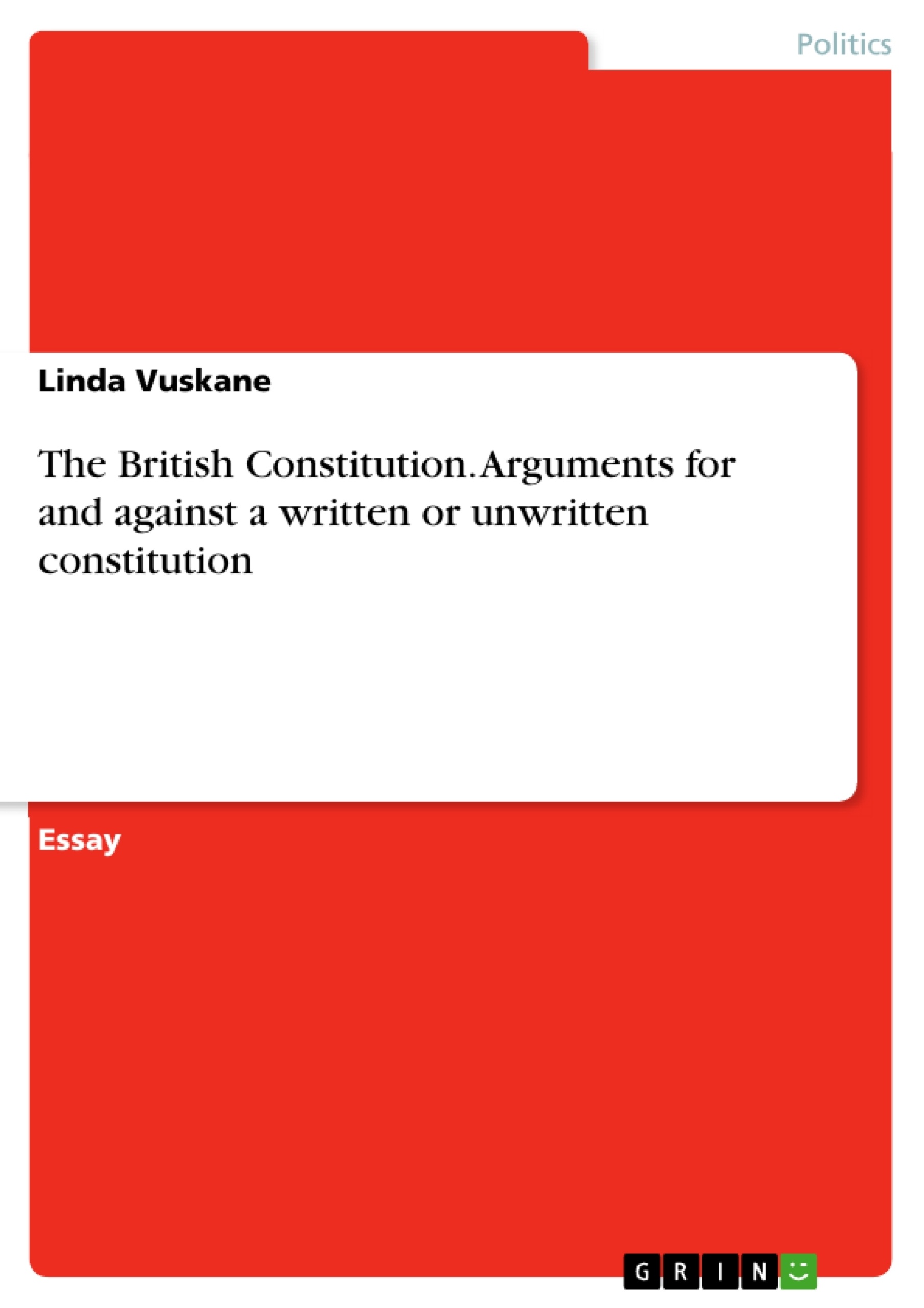This essay sets out to analyse the debate about the British Constitution and examine the arguments for and against a written or unwritten constitution.
The paper concludes that the arguments for a written constitution outweigh the ones against it and given the current political situation in Britain today it would be desirable to take a codified constitution into a consideration.
Table of Contents
- The British Constitution
- Arguments for and Against a Written Constitution
- Parliamentary Sovereignty
- The Role of the Executive
- The Judiciary
- Arguments for an Unwritten Constitution
- Flexibility and Adaptability
- The Role of Judges
- Practical Considerations
- The Importance of Political Will
Objectives and Key Themes
This essay examines the debate surrounding the British Constitution, particularly focusing on the arguments for and against a written or unwritten constitution. It delves into the strengths and weaknesses of the existing system, considering factors such as parliamentary sovereignty, the role of the executive and judiciary, and the potential for constitutional reform.
- The nature of the British Constitution (written vs. unwritten)
- Parliamentary sovereignty and its implications
- The balance of power between the executive, legislature, and judiciary
- The merits and drawbacks of constitutional reform, including a Bill of Rights
- The evolving role of the British Constitution in a changing world
Chapter Summaries
The essay begins by defining the concept of a constitution and outlining the contrasting approaches taken by countries with written and unwritten constitutions. It then delves into the specific case of the UK, highlighting the absence of a single codified document and the reliance on historical precedents and parliamentary procedure.
The essay then explores the arguments for and against a written constitution in the UK. It examines concerns regarding parliamentary sovereignty, the potential for executive overreach, and the perceived weakness of the judiciary in protecting citizens' rights. It also considers the counterarguments emphasizing the flexibility of the unwritten constitution, its adaptability to changing societal needs, and the potential risks associated with judicial interpretation of a written constitution.
The essay concludes by acknowledging the ongoing debate surrounding constitutional reform in the UK, highlighting recent developments such as devolution, the Human Rights Act, and the ongoing discussion about a Bill of Rights.
Keywords
The essay focuses on the core concepts of the British Constitution, exploring the debate surrounding written versus unwritten constitutions, parliamentary sovereignty, the balance of power between branches of government, constitutional reform, and the potential for a Bill of Rights. It also examines the influence of external factors such as the European Union and the European Convention on Human Rights on the evolution of the British Constitution.
- Citar trabajo
- Linda Vuskane (Autor), 2009, The British Constitution. Arguments for and against a written or unwritten constitution, Múnich, GRIN Verlag, https://www.grin.com/document/508859




